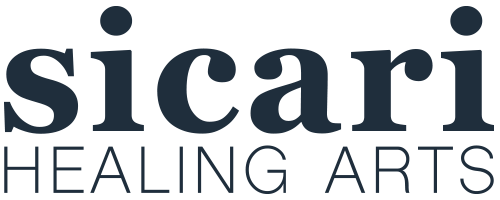
12 Jul What Conditions Can Acupuncture Help?
If you’re like most Americans, you’ve likely heard of acupuncture or may have even been treated with it for some form of pain. But did you know that this versatile treatment option, which is a cornerstone of holistic healing and Traditional Chinese Medicine (TCM), is effective for a variety of health conditions?
Acupuncture, which is the practice of inserting sterile, hair-thin needles at strategic points on the body’s Qi (energy) channels or “meridians,” has more recently been recognized as a pain therapy, but the practice includes treatment of many different ailments.
Read on to discover the amazing ways in which acupuncture has been used to correct physical and emotional imbalances that manifest as common health problems.
Chronic Pain
Acupuncture is perhaps best known in the United States as a proven treatment for chronic back pain. Acupuncture has been shown to be effective in relieving symptoms associated with lower back pain and sciatica resulting from bulging and herniated spinal discs. The pain relief results not only from the stimulation of acupuncture points along the body’s meridians, but also from the release of natural pain-fighting hormones known as endorphins that are associated with reduced stress.
Arthritis is one of the most common conditions associated with chronic pain, and acupuncture is a known treatment for many forms of it. It has shown particular use in the treatment of osteoarthritis of the joints — the most common form of arthritis — not only helping to reduce pain but also increase range of motion. The Western medical community has not yet determined the exact cause of fibromyalgia, rendering many modern treatment options inadequate or ineffective. TCM and acupuncture offer an effective alternative treatment option.
People experiencing post-operative pain have found acupuncture to be a safe alternative to taking painkillers. In this time of epidemic opioid dependence, it’s comforting to know that there is a non-addictive option available for the treatment of such pain.
Those who suffer from migraines or frequent tension headaches but want to steer clear of pharmacological approaches to treatment are excellent candidates for acupuncture. Many of those afflicted by these painful neurological conditions report that either drug treatments don’t work or they want to avoid excessive intake of analgesic medicines that merely mask symptoms. Acupuncture has been a mainstay treatment in this area for years because of its positive effect on the neurological causes of headaches.
Gastrointestinal & Urological Problems
When it comes to gastrointestinal disorders, acupuncture has been demonstrated as an effective treatment for gastritis and ulcers. It not only helps alleviate pain associated with these stomach ailments, but it works to reduce inflammation, one of the main problem symptoms of those conditions. Other symptoms it can help alleviate include nausea, acid reflux, IBS, constipation and diarrhea.
A urological disorder that has responded well for decades to acupuncture is OAB, or overactive bladder syndrome.
Women’s Health Issues
In the treatment of female infertility, acupuncture can be effective as complementary medicine along with Western infertility treatment to address difficulty conceiving and high rates of miscarriage.
For pregnant women, acupuncture is excellent at relieving the nausea associated with morning sickness, and it offers patients and their babies an alternative to drugs and their side effects. Because of its effectiveness at helping manage pain, acupuncture can also be used to treat pregnancy-related back pain. It has also been shown to help in post-partum care, as well as difficult menstrual cycles, peri-menopause and menopause.
Mental & Emotional Disorders
Scientific American reported case studies in which people suffering from depression used acupuncture either as a substitute for antidepressant medications or as a method of mitigating the side effects of those medications.
Acupuncture also has proven effective at relieving stress and anxiety by pinpointing nerve centers that help control the flow of stress-related hormones released by the endocrine system of our bodies.
Addiction treatment centers widely employ acupuncture as a way to help relax and ease those suffering from withdrawal and reduce the stress of undergoing the often drastic change of living life substance-free. One of the more common forms used to treat addiction is ear acupuncture, which prescribes insertion of acupuncture needles into the outer ear, and according to a report by Yale University’s Department of Psychiatry, this treatment is becoming more recognized and accepted by conventional programs as a key tool in addiction treatment and recovery.
Lastly, because of its known ability to effect relaxation and calm via neurological and hormonal centers in the human body, acupuncture is often used as a natural tranquilizer and drug-free treatment for insomnia, which is a health issue that greatly affects those in recovery but also a large percentage of the general population.
Given its history as a tested, effective therapy for a broad range of medical issues, acupuncture is no longer considered “alternative” medicine. In fact, this ancient healing art has gained widespread acceptance by the scientific community and medical establishment for its ability to complement modern treatment plans and offer many health advantages on its own.
If you are experiencing any of these ailments — or others — and are seeking relief, schedule an appointment today with Sicari Healing Arts.


